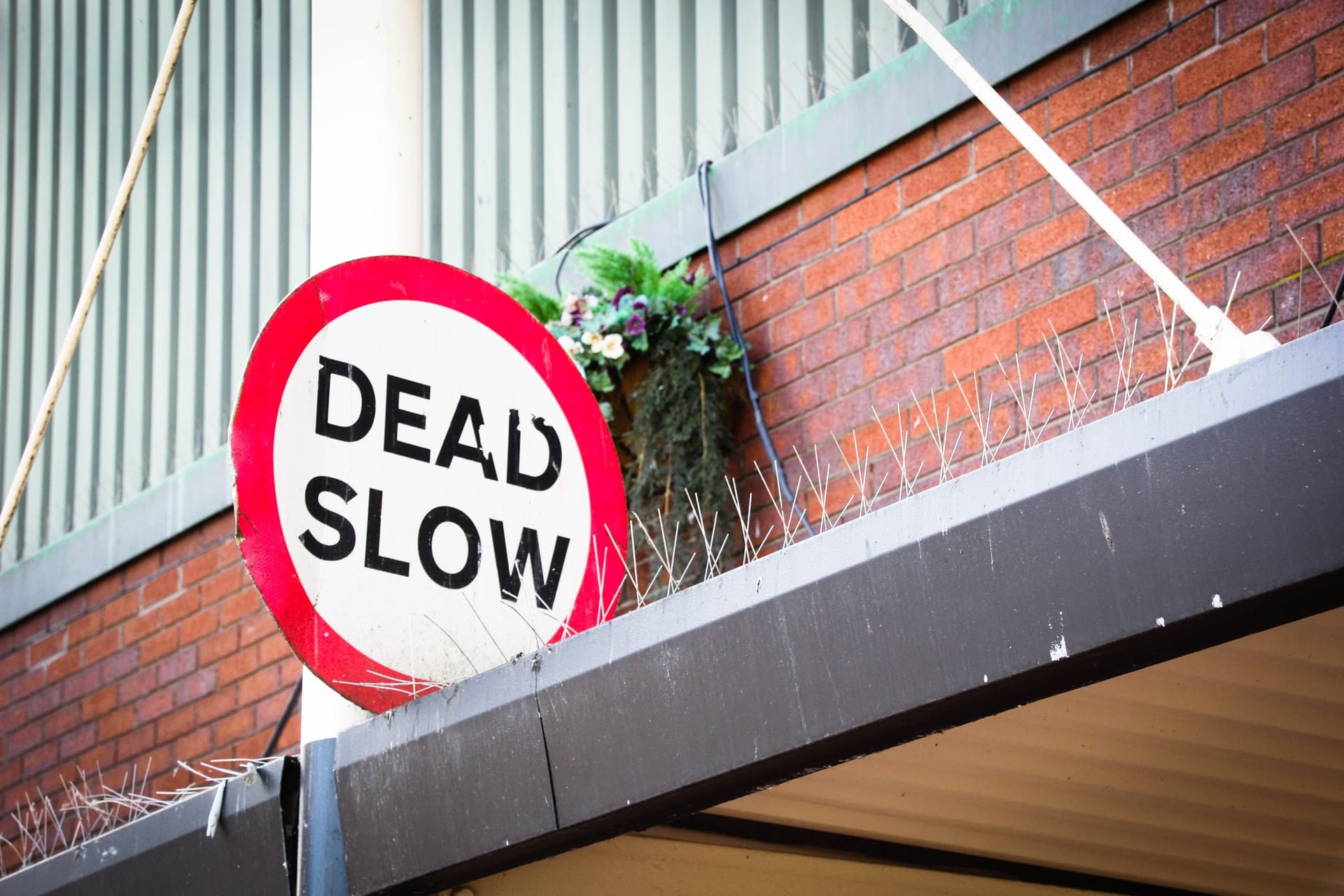This was one of my favourite questions from a client. It was during the workshop for the new website he had commissioned from us, and he just couldn’t understand why his previous site wasn’t doing well in the search results. The truth was that it was nothing personal and Google didn’t feel any way in particular about him, but they probably did hate his website.
Perhaps hate is a strong word for an algorithm, but it does get the point across. There are certain things a site can be guilty of that will make it less appealing to Google, and sometimes even earn penalty points for. Here are some of the more common ones, and what you can do about them.
1. Slow loading speed

Google really does hate slow sites, especially slow sites on mobile devices. As far as they are concerned, a slow site is amongst the poorest of user experiences possible and has no place in the New Web Order. But it is a fair point, and if your site is slow, it’s not just Google rankings you should be concerned with, it’s all the frustrated visitors who are leaving your site for another that can provide what they want without the wait.
What you can do
First thing would be to check with Google themselves, who provide a handy little tool here for testing your site’s speed on mobile devices. If it finds your site wanting, you can have it generate a report with suggestions for how to speed up. There is also a more comprehensive tool from Google here that will test both mobile and desktop versions of a site, but the results you get are aimed more at developers and may seem like a different language to the uninitiated. That said, all of the results it gives from the various measurements taken are labelled in red, orange or green, so you will at least get a visual idea of how healthy your site’s load speed is (even if you don’t understand the details).
The most common reason for slow loads is badly optimised media, and this is certainly an issue you can do something about. Are the images in your site bigger than they need to be? This is a familiar hiccup when using stock imagery, which is often downloaded at full size and then uploaded directly to a website. Full size stock images are invariably far larger than necessary for any screens, so it’s worth checking your download options for smaller sizes to save you time and headaches. Even if it’s not stock imagery, it’s still worth checking the size. As well as the dimensions of the image, look at how it’s saved. If it’s a photograph then PNG format will tend to give a much larger file than a JPEG would. Also, with JPEG you can play with the compression setting to get a smaller image file – the key is the larger the physical size of the image in pixels, the more compression you can get away with before it becomes visible. Compression is also key when dealing with video files, download and play with something like the brilliant free tool Handbrake for this.
2. Your website is not responsive
If this is the case, then sorry – you deserve your spot on the naughty step. Not only is Google going to penalise you for having a site that isn’t mobile-friendly, but mobile and tablet users will not want to stay on your site if they are expected to pinch and zoom for everything. It’s 2021, a responsive website should go without saying, which is why nearly everyone reading this will be wondering why I even brought it up.
What you can do
Invest in redesigning your website to make it responsive. There are no quick fixes to this one.
3. Duplicate Content

Well, the same is true of web content, and even more so than exams. Google will instantly recognise text it has already indexed, and as such will treat yours as unimportant because it believes your website copy is, well… copied.
This is a problem because not all duplicate text is plagiarism. Perhaps you are using a product description from a manufacturer, or working from a press release – unintentionally you may well be populating your pages with text Google has seen elsewhere already.
What you can do
Rewrite. Don’t use copy and paste, but read it and then write it yourself. In your own words. See? Those exams were good for something after all.
4. Your visitors are bouncing

Bouncing is a term used to describe users not staying on your site. If you are found in a set of search results and users visit your site, only to leave without doing anything further, Google defines this as a ‘bounce’. Now this is actually fairly natural, not everyone who visits your site will want to stay, especially if they are looking for something very specific that your site obviously doesn’t provide. But when it happens a lot, this is termed a ‘high bounce rate’ and is an indicator that your site just isn’t grabbing attention. In this case, it will be inferred that your site delivers a poor user experience and its ranking will suffer as a result.
What you can do
The obvious answer would be to make your site more engaging, make visitors actually want to come in and look around. This doesn’t necessarily mean being flashy, in fact, most times that’s the opposite of what you should do. Instead, consider your site from your visitor’s point of view and do your best to give them what they want. This is almost always down to good design, so it’s worth investing in.
Another thing is to give your visitor something to do. A call to action, prominently placed on your home page can be the difference between an engagement and a bounce.
5. You have bad backlinks
Have you bought backlinks to your site? You probably thought it was a good idea, or were persuaded that this was the way to climb the rankings. After all, it makes sense – the more sites link to you, the more authority your domain has and the more important you will appear in any set of search results, right?
Wrong, because the number of links is not the whole picture. The quality of links is far more important than sheer quantity. Google will place more importance on a link from a high authority domain than a number of links from low-ranking domains. For example, one link to your site from a news story on bbc.co.uk is worth hundreds of links from personal blogs. And not only that, if you are paying for links, the likelihood is they are coming from sites that will end up on Google’s blacklists (if they’re not there already).
Unfortunately, it is not always the case that bad backlinks are down to you. Sometimes unscrupulous SEO agencies may choose to poison your standing with Google by organising deliberately bad backlinks to your site, simply in order to help a competitor rise above you. And also, sometimes, you just end up linked to from a dodgy site for no discernible reason.
What you can do
You can disavow any links to your site that you believe count against you, essentially telling Google you don’t want anything to do with those sites. To do this involves using Google’s Search Console, but as Google warns “This is an advanced feature and should only be used with caution”, you may feel safer having a reputable SEO agency handle it for you.
Is that all?
No, not by a long shot. There are many more issues you could have with your site that may cause Google to rank other sites higher than you, but the two things it really comes down to are what kind of user experience does your site offer, and does Google think you’re trying to game its system?
Because Google has come out publicly as factoring ‘page experience’ into how it ranks sites, anything that looks like it’s contrary to a great experience for the user will count against you. This could include not having an SSL certificate on your site (meaning your address starts with HTTP rather than HTTPS) suggesting your site is not secure, a lack of accessibility considerations, possible malware associated with your site, and the first two items in the list above – slowness and not being mobile friendly.
Google also doesn’t like what it considers to be cheating. Anything it perceives as an attempt to game the system to achieve higher rankings is usually dealt with fairly severely. SEO ‘tricks’ of the past are pretty much all SEO mistakes of the present. Keyword stuffing, link farming, unique pages for every keyword variation, hidden text and overusing H1 tags are all practices that are now more likely to push you down the rankings than anything else.
So what should I do?
Keep calm for a start. The Google algorithm doesn’t hate you. Sometimes it may seem hard, but invariably it is fair. If anything, its aim is to have the most deserving sites at the top of the search results – basically the best answers to any particular search. The way to get there is to have great content that is structured well, on a site that does everything it can to offer a good user experience to any visitors. And, ideally, this is what everyone should be doing anyway regardless of the impact on Google rankings.
Posted by: Jean Paldan
Mar 17, 2021


